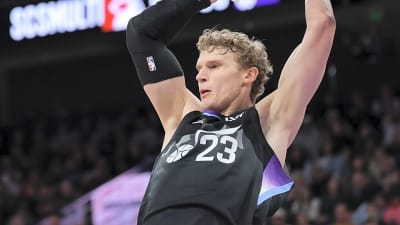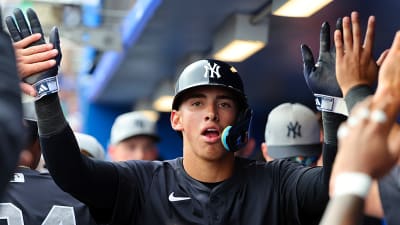
The Atlanta Hawks have spent the 2025 offseason aggressively retooling their roster. The trade for Kristaps Porzingis, along with the free agent signings of Nickeil Alexander-Walker and Luke Kennard, was a clear signal that the front office wants to position the team as a serious contender in the Eastern Conference. These are win-now moves, designed to surround Trae Young with talent that complements his game. Yet, the most important move of all, securing Young with a $229 million max contract extension, remains conspicuously absent.
Recent reports have only added to the tension. Marc J. Spears revealed in ESPN’s NBA Today that Young was “disappointed” by Atlanta’s lack of an extension offer. At the same time, NBA Insider Jake Fischer noted that the organization had not even seriously initiated talks. Young’s camp has already come to terms with the idea of playing out the final guaranteed year of his current contract rather than securing another long-term deal now. This is not the kind of uncertainty any franchise wants around its franchise cornerstone. For a team that claims to be building for the future while competing in the present, the delay is not just puzzling; it is dangerous.
Trae Young is the Hawks’ identity
Since being drafted fifth overall in 2017, Trae Young has been the face, voice, and engine of the Atlanta Hawks. His deep shooting range, elite playmaking, and offensive creativity have given the team an identity it had lacked for years. He is the player who brought the Hawks back into the national conversation, leading them to the Eastern Conference Finals in 2021, their first since 1970, and drawing sell-out crowds at State Farm Arena.
Young’s resume speaks for itself. In just seven seasons, he has collected four All-Star selections and one All-NBA honor. He has averaged nearly 25 points and nine assists per game, proving to be both a prolific scorer and a masterful distributor. The Hawks’ offensive system is built entirely around his unique ability to create for himself and others. In an era where true offensive engines are rare, Young is not just an asset; he is the defining feature of the franchise. Without him, Atlanta risks becoming an anonymous, middle-of-the-pack team once again.
The $229 million price tag isn’t the real risk; losing him is
At first glance, the $229 million figure may appear massive, but it is in line with the market for elite players in today’s NBA. Given the salary cap’s steady growth, this contract would occupy a predictable portion of Atlanta’s payroll. For a player with Young’s production and influence, this is not an overpayment; it is simply the cost of retaining a generational talent in the modern game.
Marc Spears on a Trae extension: "What I'm hearing now at this point…I think he's disappointed that it hasn't come, it hasn't been offered" pic.twitter.com/zJ0IrmOvKs
— Oh No He Didn't (@ohnohedidnt24) August 5, 2025
The real danger lies not in committing this money, but in failing to do so. Star players expect loyalty from the franchises they elevate, and Young has done more than enough to earn that commitment. Delaying this decision risks alienating him and creating a perception, both in his camp and around the league, that the Hawks do not value their cornerstone appropriately. In a league where player movement has never been easier, reputational damage can be just as harmful as losing a playoff series.
The financial implications of waiting are also significant. If Young earns an All-NBA Team selection this season, he will become eligible for a $350 million supermax deal next summer, a figure that would place an even heavier burden on Atlanta’s salary structure.
In other words, hesitation now could lead to an even greater financial commitment later.
Young’s resume justifies the commitment
While detractors point to Young’s defensive limitations and occasional bouts of high-turnover games, his offensive brilliance far outweighs these shortcomings. His court vision is among the best in the league, allowing him to manipulate defenses and create high-percentage scoring opportunities for teammates. His shooting range forces opponents to defend him far beyond the three-point line, opening space for others to operate.
Young has also proven durable, avoiding the kind of long-term injuries that have derailed the careers of other young stars. More importantly, he has already demonstrated his ability to elevate a team in the postseason. The 2021 playoff run was a masterclass in leadership and skill, as he guided the Hawks past the New York Knicks and the top-seeded Philadelphia 76ers before pushing the eventual champion Milwaukee Bucks deep into the Conference Finals.
These are not qualities that can be easily replaced. They are precisely the reasons why other franchises would line up with blockbuster trade offers if the Hawks were ever to make him available, and precisely why Atlanta should not even entertain the idea.
The Hawks’ new roster means it’s time to go all in
Atlanta’s roster overhaul this offseason makes sense only in the context of building around Young. Porzingis offers floor spacing and rim protection that perfectly complement Young’s drive-and-kick style. Alexander-Walker adds backcourt defense, covering some of Young’s weaknesses, while Kennard brings additional shooting to maximize spacing. These moves suggest a clear blueprint: surround Young with versatile, efficient players who can stretch the floor and defend.
"I think this is going to be a slow play as far as where both sides are going to go."@BobbyMarks42 breaks down why the Hawks and Trae Young may be taking some time to reach an agreement on an extension
pic.twitter.com/FLy4kd3nAr
— NBA on ESPN (@ESPNNBA) August 11, 2025
If Young were not part of that equation, the roster would lose its strategic coherence. Porzingis without Young’s pick-and-roll mastery is a diminished asset. Kennard’s shooting becomes less potent without Young drawing multiple defenders. Alexander-Walker’s defensive utility matters less without a high-octane offense to balance it. Every move the Hawks have made points to one reality: they are all in on Young’s skill set. Now the front office must match that personnel commitment with a contractual one.
It is tempting to think the Hawks might be waiting to see how this retooled roster performs before committing to a max extension. But that approach risks backfiring in several ways. A star who feels undervalued can subtly affect locker room morale, even without public drama. The longer negotiations drag on, the more they feed media speculation and trade rumors, creating an unnecessary distraction.
From a business perspective, delaying could also mean losing leverage. If Young were to request a trade, the Hawks would be negotiating from a position of weakness, with rival teams knowing Atlanta’s hand had been forced. And again, there is the financial risk: an All-NBA selection in 2025-26 would push Young’s price tag over $120 million higher than the current extension offer.
In professional sports, timing is everything. The Hawks’ window to make this extension both financially viable and emotionally meaningful will not remain open forever.
In 2021, the Hawks’ unexpected run to the Eastern Conference Finals felt like the beginning of a long, mutually rewarding partnership between Young and Atlanta. He embraced the city, the franchise, and the responsibility of leading a team that had not enjoyed sustained relevance in decades.
Loyalty in the NBA is a two-way street. Young has stayed committed through front office changes, coaching shifts, and fluctuating rosters. He has delivered both on the court and in the marketplace, driving ticket sales, boosting merchandise, and keeping Atlanta in the national conversation. Not rewarding him now risks undermining that trust.
If the Hawks want to cultivate a winning culture, it must be built on the principle that excellence is recognized and rewarded. That means not waiting until circumstances force their hand, but acting decisively when the opportunity to secure their future is right in front of them.
More must-reads:
- Six players who could succeed Celtics guard as Sixth Man of the Year
- Five takeaways from the 2025-26 NBA schedule: New rivalries? Challenging the NCAA?
- The 'NBA minutes leaders by season' quiz
Breaking News
Trending News
Customize Your Newsletter
 +
+
Get the latest news and rumors, customized to your favorite sports and teams. Emailed daily. Always free!








